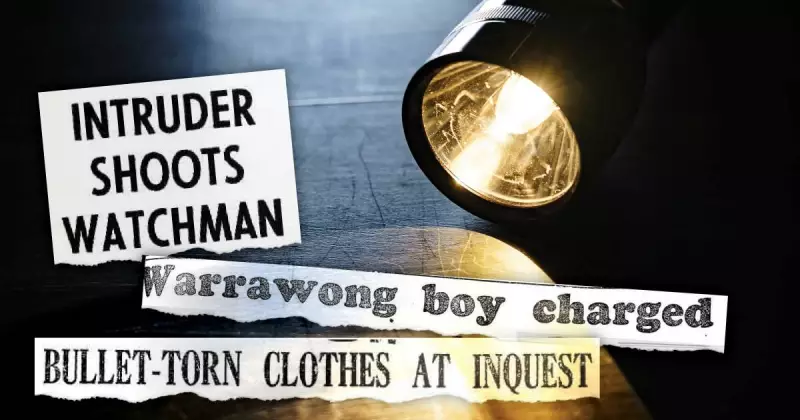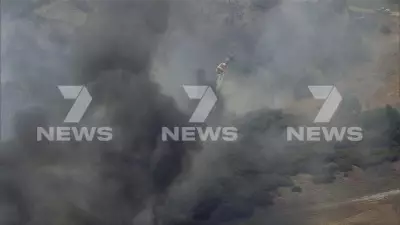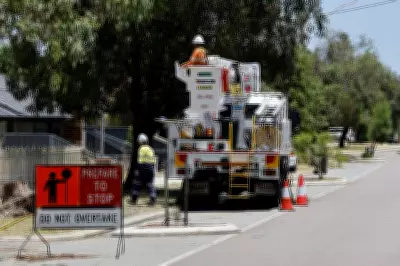
The Night That Shook Port Kembla
On August 25, 1954, the quiet streets of Port Kembla were shattered by a single gunshot that would end one life and change another forever. James Douglas Hawkins, a nightwatchman employed at a mobile welding company on Five Islands Road, was performing his duties when he encountered an intruder around 2am.
Victor Hurst, a resident of Hillview Street, was asleep in his home when he was awakened by the distinct sound of a gunshot. Moments later, he heard desperate cries for help: "help, help, Vic, Vic". Hurst immediately rushed toward the sound, heading into a vacant paddock behind the welding company where he discovered Hawkins crouched over in obvious distress.
A Fatal Confrontation and Failed Escape
When Hurst asked what had happened, Hawkins delivered his chilling final words: "I've been shot in the chest." Despite Hurst's quick actions in calling police and an ambulance, Hawkins never made it to hospital. He died in the back of the ambulance, becoming the victim of a brutal murder that would soon rock the Illawarra community.
Police investigations revealed that Hawkins had been shot at point-blank range with a sawn-off .22 rifle after disturbing a burglar at the welding works where he lived in a small building at the rear of the property. Despite his critical injury, Hawkins managed to stagger across the yard, through a fence gap, and approximately 130 metres into the paddock where Hurst found him.
Other Hillview Street residents reported encountering the fleeing murderer. Jack Della Bona saw the man running down the street and was threatened with "do not move, or I will let you have it". A married couple who came outside after hearing the gunshot received similar threats.
The Investigation and Shocking Arrest
Within just three days, police made a startling arrest: 17-year-old Stipo Jezidzic was charged with Hawkins' murder. The investigation uncovered that the teenager had been involved in multiple criminal activities in the days leading up to the murder.
Jezidzic faced additional charges for breaking into Warrawong Public School two days earlier, where he stole a radio belonging to teacher Patricia Bartlett. The burglary left behind a peculiar clue - the word "good" written on the staff room wall in lipstick. He was also charged with stealing bullets from a Warrawong business and robbing a man of £40 at gunpoint.
During the inquest, police presented a handwritten confession allegedly written by Jezidzic. In the document, he claimed he had been drilling holes around a lock when Hawkins approached. "I thought he might kill me so I just aimed for his legs to make him fall down," the confession stated. "But he must have moved as I pulled the trigger and the gun went off."
The Trial and Emotional Aftermath
The courtroom proceedings revealed contrasting portraits of the accused. The Illawarra Mercury's reporter noted Jezidzic's "pale-faced, slightly built" appearance and his placid demeanor throughout much of the evidence. He showed little interest in proceedings, occasionally clasping his hands and gazing at the courthouse roof.
During the trial, Jezidzic changed his story dramatically. He claimed a man named Alan had borrowed his drill on the night of the murder and sold him the stolen radio. He also alleged that police had coerced his confession through physical abuse, stating they "punched him in the stomach and pulled his hair" to make him write what they dictated.
His mother testified that Jezidzic had been home on the night of the murder, awakened multiple times by his 12-year-old sister's toothache. However, the jury found him guilty of murder, prompting the teenager to finally show emotion by dabbing his eyes with a handkerchief.
Justice Dovey sentenced Jezidzic to life in prison, noting that he had dodged a death sentence only because he was under 18. The judge expressed bewilderment at the crime, stating "for some reason, which I find almost impossible to understand, but which seems to be nothing more than greed and a desire for ill-gotten money, you embarked on a career of crime."
The judge also criticized Jezidzic for attempting to "blacken" the names of police and for showing no remorse throughout the proceedings. The other charges related to the school burglary and assaults appeared to be dropped following the murder conviction.
This tragic 1954 case remains a sobering reminder of how a single night of crime can forever alter multiple lives in a small Australian community.





